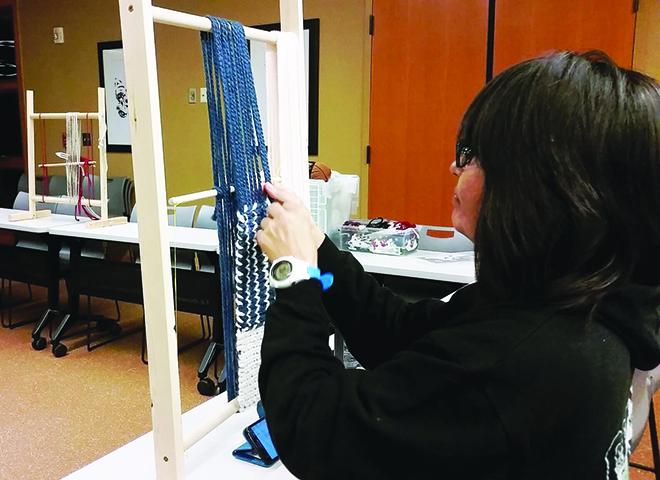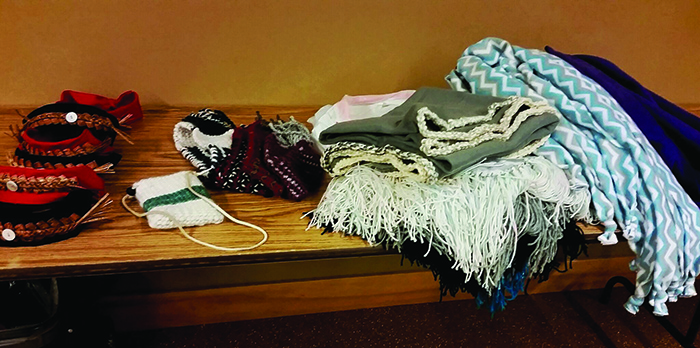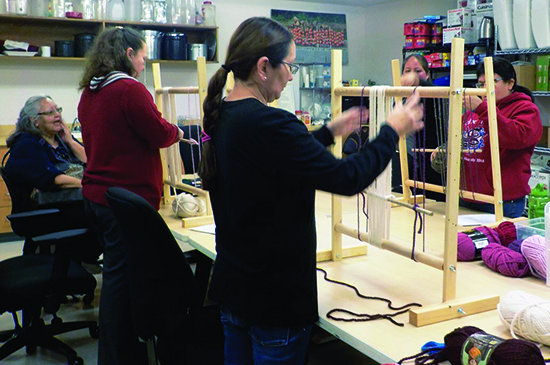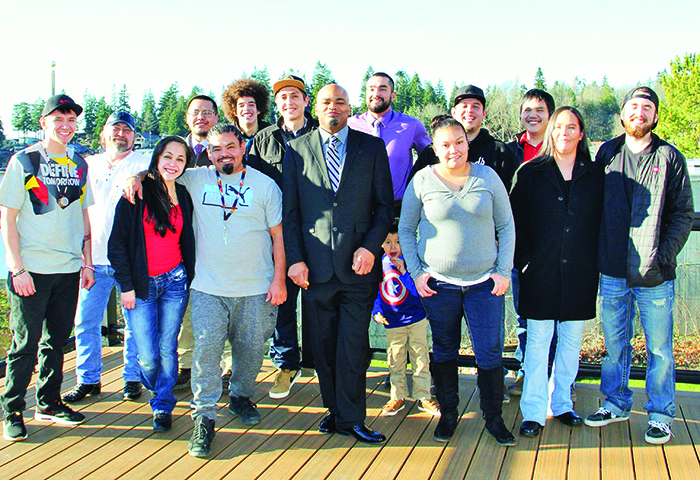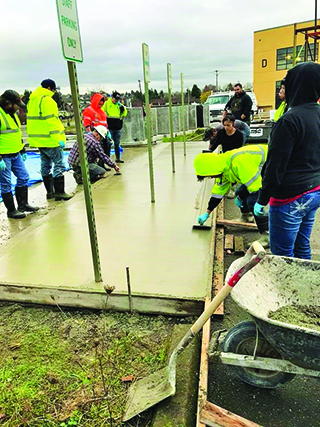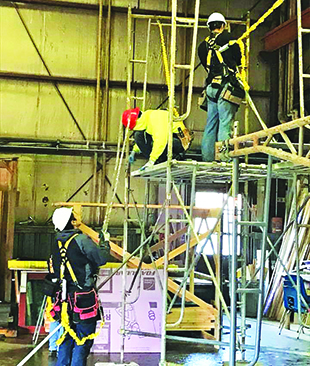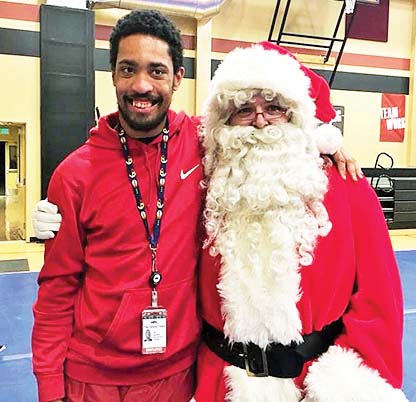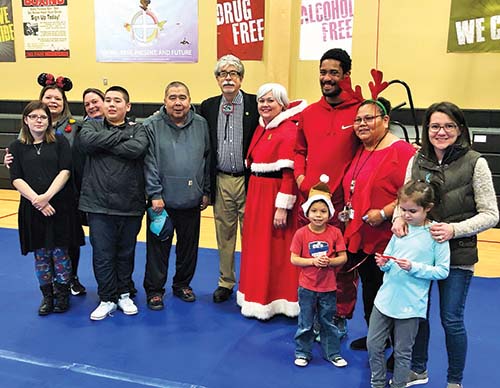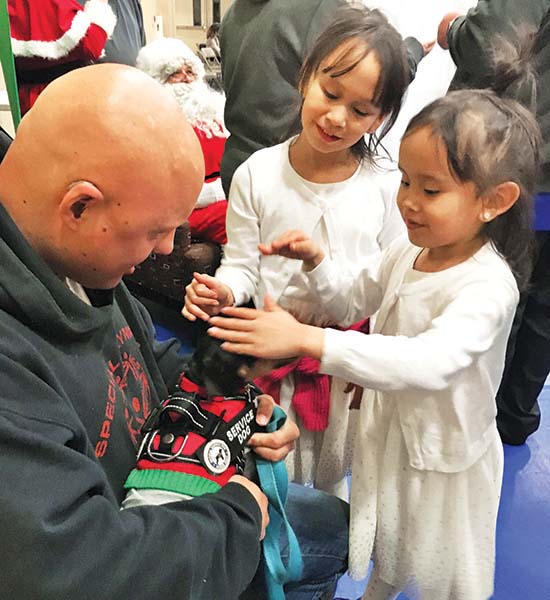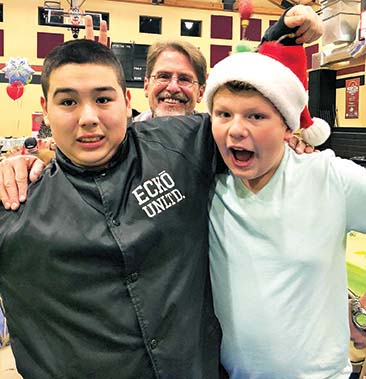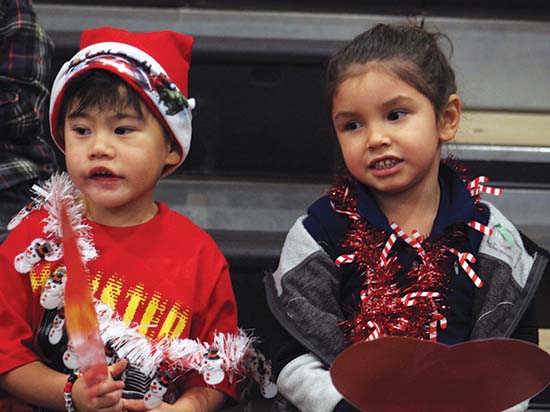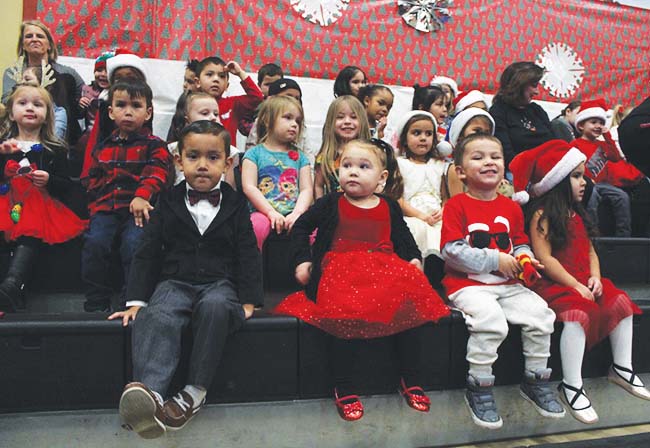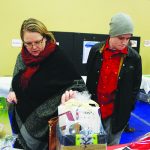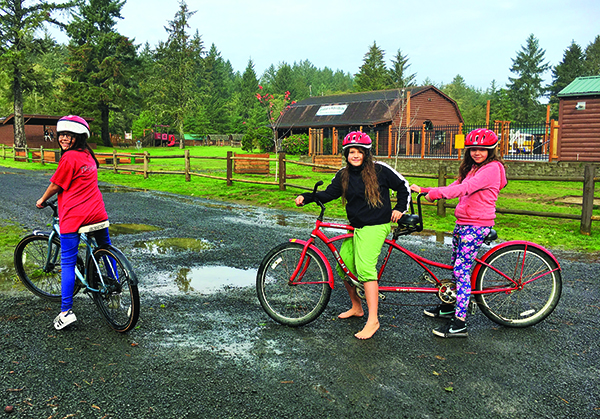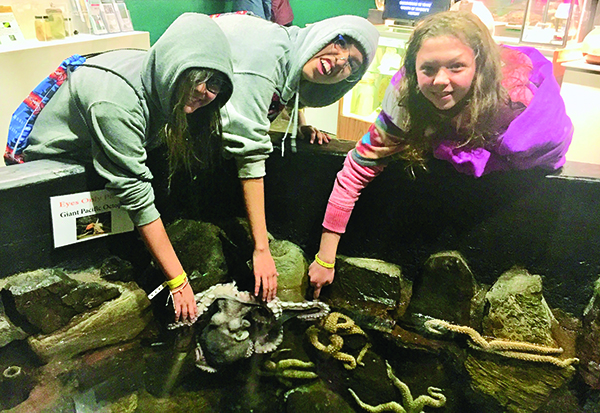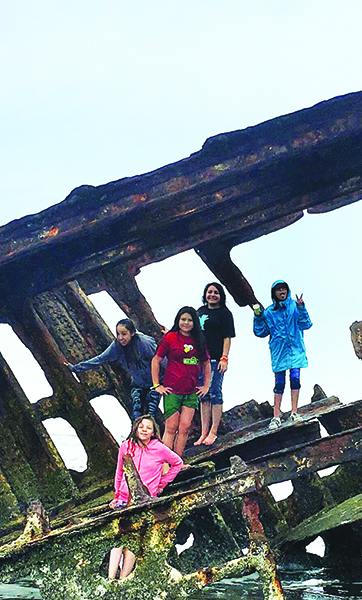Category: Education
Why study Environmental Science?
Submitted by Jeanne Steffener, Tulalip Tribes Higher ED
Are you wondering if the field of environmental science is the right path of study for you? Here is an important question that you might want to ask yourself: Do you like nature and the outdoors? This is a really important question because as an environmental scientist, you will be spending a lot of time out in nature, observing all the things in nature. Environmental science helps you to really focus on learning all you can about the natural world around you. In the process, you begin analyzing and researching the connections between people and their environment. Studies will also include learning about the eco-system and what we can do keep a balance between humans and living and nonliving things.
At present, there are many important issues we need to address. Among those are global warming, climatic change, management and proper use of resources, air pollution, acid deposits, water and land pollution, reduction of the ozone layer, sustainability of economies, spread of communicable diseases, waste management, hazardous chemical use on health and wildlife and the possible environmental risks associated with the production of genetically engineered organisms. A student who has a passionate concern for nature and the science behind it plus a desire to find solutions to environmental sustainability will find that the experience will be its own reward.
Even though we live in a modern but overly industrialized world, man cannot dismiss his ties to nature. During the course of time that you devote to earning your environmental degree, you will gain a group of skills that will help you when working in the out-of-doors. Definitely, the ability to work well as a team member is an important requirement when realizing that most projects are group centered. Data analysis skills will be gained you spend many years observing nature. Other skills are gained while building the student’s ability to identify, comment on and implement an effective use of data collection gathered during research.
Environmental issues and their solutions usually include social, political and economic aspects that researcher’s become aware of. The environment makes up and influences every aspect of life on earth which indicates that Environmental Science is very important because it teaches us how to conserve the environmentt.
Even if you are unsure about your career plans, studying environmental science can be an exciting pathway for discovery. The job possibilities for someone with a environmental based background are limitless. Please call Higher ED staff at 360-716-4888 or email us at highered@tulaliptribes-nsn.gov for assistance with this educational path.
Vote YES for Tulalip and Marysville Schools
By Dean Ledford, Tulalip tribal elder
Our kids say vote YES, Feb 13. YES for Tulalip and Marysville Schools.
This coming election, the Tulalip and Marysville community will have an opportunity to renew two education levies – the Educational Programs and Operations levy and the Technology and Capital Projects levy.
Approval of these levies will ensure students have enough classroom teachers and instructional aides and reduce and maintain smaller classroom sizes. It will also employ nurses, counselors, librarians and support staff that reinforces the health and safety of our students.
Renewal of these levies ensures we can continue to fund programs for students with special needs and support the arts, music, athletics and extra-curricular programs. Additionally, renewal of the Technology and Capital Projects levy will improve our school buildings and facilities by addressing the most pressing facility retrofits and replacement needs over the next five year, and it will continue to provide students, families and our community with 21st Century technology resources and free 24/7 Wi-Fi access across the district.
A YES vote is critical to the success of our local students and our community. A majority of our families are exempt from paying taxes and cost to the taxpayer is minimal. Join me and vote YES for kids by February 13. Thank you for your support.
Marysville School District February Levies
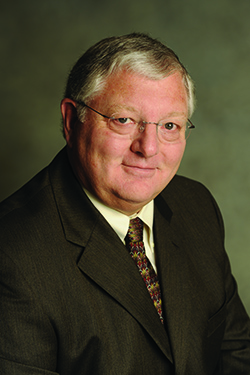
By Tom Albright, President, Marysville School District Board of Directors
On Feb. 13, the Marysville and Tulalip community will have an opportunity to vote on two replacement levies that will maintain support for the educational programs and services students currently receive as well as provide for the improvement and maintenance of the facilities where they learn and grow. The four-year Educational Programs and Operations Levy and the Technology and Capital Projects Levy were approved by voters in 2014 and will expire at the end of 2018. February’s ballot will include a request to renew these levies and ensure local students continue to receive basic educational resources.
The Educational Programs and Operations Levy will provide funding to ensure students have enough classroom teachers and instructional aides to reduce and maintain smaller class sizes. It also provides resources to employ nurses, counselors, librarians and support staff to reinforce the health and safety of students and positive school culture. The Educational Programs and Operations Levy will also provide programs for students with special needs, and will support the arts, music, athletics, and extra-curricular programs across the district. The total request per $1,000 of assessed home value for Marysville residents is $2.97, which is 70 cents less than current levels. However, tribal members residing on reservation land are exempt from levy taxation.
The Technology and Capital Projects Levy will ensure students receive the same level of service in improved learning environments. Access to technology is a basic right in the Marysville School District. Approval of the levy will continue to provide students in grades 6 through 12 with Chromebooks for use inside and outside of the classroom, and all students from kindergarten through grade 5 will continue to have ample access to technology in the classroom. This levy also provides funding to ensure school staff receives training on best practices for incorporating technology into curriculum so all students are getting the most out of 21st Century resources.
Additionally, the levy will continue to provide students, families and the community with 24/7 Wi-Fi access across all buildings, as well as routers, power sources, and wiring to maintain capacity and improve access and speeds.
The Marysville School District also understands the importance of maintaining school buildings and facilities, and will continue to follow through on the Long-Term Master Facilities Plan, which prioritizes the most critical facility retrofits and replacements needed over the next five years. This includes roof and gutter replacements, fire system upgrades, door and hardware replacements, boiler replacements and heating improvements, floor replacements, electrical retrofits such as lighting, outlets, and intercoms, and siding replacements. A complete list of projects across the district can be found on the Long-term Master Facilities Plan at http://bit.ly/MasterFacilitiesPlan.
The four-year renewal Technology and Capital Projects Levy is projected to cost 67 cents per $1,000 of assessed home value for Marysville residents and will be reduced each year.
In total, the two levies amount to $3.64 per thousand of assessed home values – 42 cents less than current levels. As a reminder, tribal members residing on reservation land are exempt from this taxation.
The Marysville School District Board of Directors is thankful for the support provided by the community over the past four years and looks forward to continuing these efforts on behalf of students and families through a renewal of the Educational Programs and Operations Levy and the Technology and Capital Projects Levy.
Weekly Wednesday Weaving Workshops at Hibulb
By Kalvin Valdillez, Tulalip News
The Hibulb Cultural Center and Museum hosts a lineup of classes that teach the Tulalip and Marysville communities about the traditional lifeways of the northwest Indigenous Peoples. Such classes include drum making, carving, beading, traditional flute demonstrations as well as storytelling and poetry nights. A series of classes that regularly attracts newcomers are the Weaving Gathering Workshops where participants learn how to weave an assortment of items including cedar baskets, loom blankets and regalia such as headbands, hats, neckties and purses.
The workshops are taught in an open-forum style class setting that encourages attendees to work on personal projects and visit while mastering the art of weaving. In preparation for the annual Treaty Days Commemoration, a group of dedicated weavers have been working persistently, meeting each week since December, to create headbands to gift to the speakers as well as the floor and table managers during the ceremony.
All ages are welcome to attend the weekly weaving sessions. The museum also invites weavers of any skill levels to participate during the gatherings. Cedar kits are available for purchase to help beginners get started.
“They’ll show anyone interested in learning, especially little kids. They’ll make little roses and small baskets with them,” says Hibulb Cultural Center Education Curator and Tulalip Weaver, Lena Jones. “It’s a place where people have the room and space to create whatever they want.”
The workshops are held every Wednesday from 5:00 p.m. to 8:30 p.m. in the Hibulb Cultural Center Classrooms. For additional information please contact the museum at (360) 716-2600.
Early Learning Academy Hosts Executive Function seminar at Parent Café
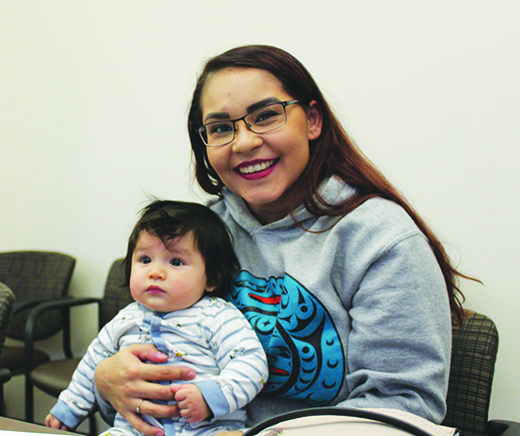
By Kalvin Valdillez, Tulalip News
Recent studies show that executive function skills begin to develop in children between the ages of birth to five. Although executive function skills aren’t fully developed until the age of twenty-five, the foundation for these skills are strongest when trained at a young age.
You might be wondering, what are executive function skills? By definition they are a set of cognitive processes that are necessary for cognitive control of behavior, selecting and successfully monitoring behaviors that facilitate the attainment of chosen goals. In other words, they are skills we use day-to-day to manage our lives and accomplish our goals. Executive function skills include impulse control, working memory, organization, task initiation, metacognition, stress tolerance, time management, planning/prioritization, emotional control, response inhibition and sustained attention.
The Betty J. Taylor Early Learning Academy hosted a two-day workshop informing parents about executive function skills on January 10 and 11. During the Parent Café, attendees were treated to snacks and beverages while viewing videos showing studies of executive function skills in early childhood as well as a presentation by ECEAP Manager Stephanie Pitman.
“I wanted to give a presentation on executive function skills because so often parents are concerned about their kiddos not knowing the ABC’s, their colors or shapes. But really for true life success, they need to have impulse control, working memory and mental flexibility. That is the basis for all other learning in the future,” says Stephanie.
During the training the parents openly talked with one another about these skills and how they pertained to their children, asking and offering parent-to-parent advice. At the end of the seminar the parents took a quiz in which they learned a little bit about their personal executive function skills strengths and weaknesses and discussed how to improve them.
“This class taught me that it’s the little things that are taught over time. I think it’s important because anything you can do to help better your children is great,” expressed Early Learning Academy Parent, Mary Cameron Perillo.
“It’s more engrained when you can get them [during ages] birth to five,” states Stephanie. “Executive function is what they’re going to have to learn in life. I may not need to know my colors or algebra in my daily life but I am going to have to know how to get along with others. I am going to have to know how to exercise impulse control and how to deal with stress. Adults use this every day, that’s the skills we need for lifelong success.”
For more information, please contact the Betty J. Early Learning Academy at (360) 716-4250.
Training for a better tomorrow
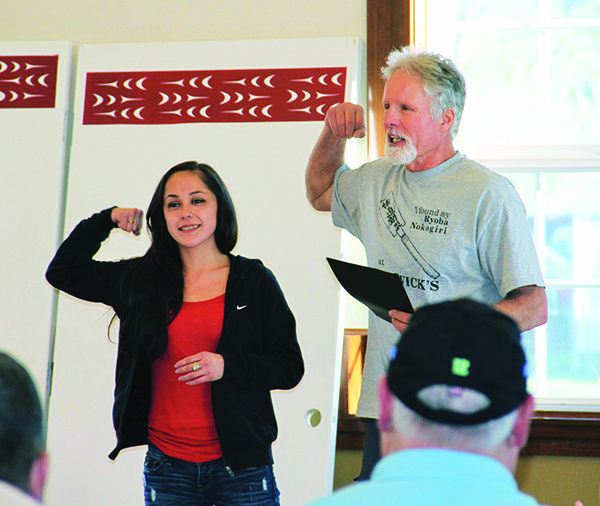
By Micheal Rios, Tulalip News
On Wednesday, December 20, fourteen Native students were honored at the Dining Hall with a graduation banquet for their commitment to training for a better tomorrow. The fourteen students, five of whom are Tulalip tribal members, were the latest cohort to complete an intensive, fourteen-week pre-apprenticeship construction trades program offered by the TERO Vocational Training Center (TVTC).
As far as we know, the program, which is managed by the Tulalip TERO department, is the first and only state and nationally recognized Native American pre-apprenticeship program in the country. The program is accredited through South Seattle Community College and Renton Technical College, while all the in-class, hands-on curriculum has been formally approved by the Washington State Apprentice and Training Council.
The fifteen-week program provides curriculum that teaches a variety of core construction skills that can last a lifetime. Upon completion, the graduate’s dedication to a better future is rewarded with a wide-range of new employment opportunities now available to each graduate as they navigate the construction trades career path. In addition, students are trained and awarded certifications in flagging, first aid/CPR, and OSHA 10-hour safety training. Graduates have also received certification on three pieces of lift equipment, specifically the scissor lift, boom lift, and industrial fork lift. TVTC students graduate trained and ready to safely and productively enter the construction work environment.
“This TERO program is an amazing opportunity for any Native American, regardless of which tribe you’re from,” says Tulalip tribal member and now TVTC graduate, Brando Jones. “I was living in Tacoma when I first learned of this class. After meeting with Lynne and Robert from Tulalip TERO I knew this class was the best chance for me to reconnect with Tulalip, while at the same time building a foundation for a better future. Now that I’ve graduated, my goal is to use this experience as a stepping stone towards success. I’m really going to miss the teachers and students. To my fellow graduates I say this, ‘We have the tools to build and keys to unlock doors, so let’s get it!’”
The TVTC pre-apprenticeship program is a unique, nationally known model that supports tribal members from sovereign nations across the United States. The program is not dependent on tribal hard dollars. In fact, zero hard dollars are used to fund it. Instead, due to the dedication and commitment of so many individuals the TVTC program continues to grow and gain more recognition while being funded by the graciousness of the Tulalip Charitable Fund, W.K. Kellogg Foundation, DOT’s Ladders of Opportunity Grant, and the Washington State Department of Transportation (WSDOT) Pass Grant.
This Fall session gave TVTC students plenty of opportunities to showcase their newly acquired construction-based skill set with a series of projects. Community projects included a two-day demo and refurbishing of the Hibulb Cultural Center’s fence, constructing a presentation booth for Hibulb, and making a concrete sidewalk at the apprenticeship training headquarters in Seattle.
“This particular group of students was a very together, cohesive unit,” describes instructor Mark Newland. “They looked after one another real well and were always willing to help each other out. When it came to the culminating project, building three tiny houses, the students showed a lot of passion in their work and did an awesome job.”
Under the supervision of instructors Mark Newland and Billy Burchett, the students constructed three tiny houses for their final class project. These houses, which are approximately 120-square-feet in size, are being donated to homeless families located at a yet to be named, newly created homeless village in Seattle. The insulated houses will be a major upgrade for their soon-to-be residents as they offer electricity, heat, a much safer environment and, most importantly, a measure of stability.
“TVTC works with Low Income Housing Institute (LIHI). To date we have built 18 tiny Homes for this organization, which donates all supplies and materials required. This has saved TVTC thousands of dollars as these houses are used for training purposes, and lumber that was previously purchased for class is no longer needed,” explains TERO Coordinator, Lynne Bansemer.
“This most recent TVTC session we added a specialty course – a forty-hour scaffolding course – that was developed by the Carpenters Union Training division,” adds Lynne. “TVTC is excited to bring this opportunity to our students as scaffolding is used across many trades and this allows more employment opportunities for our students.”
Since the Fall of 2013, when TERO took over the program, 141 students have graduated the pre-apprenticeship program. Of those 141 graduates, 57 have been Tulalip Tribal members, and 17 have either been Tulalip spouses or parents. That’s 74 graduates from Tulalip and 67 fellow Native Americans from all over the region who have opted to train for a better tomorrow by completing the construction training program.
TVTC has seen an increasing number of persons who balance a full-time job while attending the training program. This term they had several students who came to training school every day who held full-time jobs by working swing or graveyard shifts. These students wanted more opportunities in their future and were willing to put in the dedication and sacrifice necessary in order to open more doors.
For more information on Tulalip TERO’s TVTC program or to inquire about admission into the next pre-apprenticeship opportunity, please contact Lynne Bansemer, TERO Coordinator, at 360-716-4746 or visit TVTC.TulalipTERO.com
Holiday Party for Special Guests
By Micheal Rios, Tulalip News
During the evening of Tuesday, December 12, the Tulalip Youth Center came alive with the sounds of holiday music and children’s laughter. The festive atmosphere was the result of a joint effort by Youth Services and Leah’s Dream Foundation to host an early Christmas party for Native students with specials needs and their families.
“So thankful for the many people who worked hard to put this event on for our Native youth with disabilities,” said Amy Sheldon, a longtime officer of the Special Education Parent Advisory Council. “It’s these amazing people who support our kids [and have a] passion for change. As we continue to work hard we can make a difference.
“Thank you so much Jessica Ellen Bustad and Joe Boon for your continued support. Monica Holmes, you and your family rock. Thank you to Denise Hatch-Anderson and Malory Simpson, you mean the world to us. Bonnie and Bryce Juneau, we love you both so much for bringing so much joy to these kids’ eyes. Theresa Sheldon and Mel Sheldon thank you for coming and supporting our youth and always supporting Leah’s Dream Foundation.”
The evening’s holiday cheer included many fun activities and craft making, like creating hand-made ornaments for Christmas trees and making ginger bread houses. Even Mr. and Mrs. Clause made a surprise appearance to take photos with their spirited guests.
“Many of us, both parents and children with special needs were deeply touched by the words in [Scott Ballenger’s] prayer and felt grateful for the support of Leah’s Dream Foundation and the Tulalip Tribes for recognizing our struggles and creating an event specially designed to include and meet our diverse needs,” praised Monica Holmes, mother of four special needs children. “Moreover, [this event] created a place for us to have fun and meet other families with similar challenges.”
The prayer to which Monica mentions above was offered by Scott Ballenger, Marysville YMCA Diverse Abilities Trainer /Coordinator. Scott’s prayer was one of inclusion and was as follows:
“I say a prayer of inclusion. I pray not to be isolated during this holiday season. I pray for the resources that I need to be included in family and community activities. I may need some help when I wake up in the morning. I may need some help getting bathed and dressed and fed. I may need a little extra time.
“Be patient with me if I seem anxious, depressed, or distracted. Living with disability is not easy. I still want to be included. I want to show you what I can do. I want to help. Let me show you how capable I am. I’m an asset to my community.
“The differences are what make us human. I pray that you accept my diversity as a necessary part of our community. Accept and advocate for my place in our community. Accept me and my prayer will be answered. Amen.”
TELA students perform holiday hits at silent auction
By Kalvin Valdillez
The future leaders of Tulalip sang their little hearts out at the Betty J. Taylor Early Learning Academy Silent Auction and Preschool Concert on the evening of December 7.
During the event, the preschoolers helped spread Christmas joy by performing a few classic holiday hits such as Frosty the Snowman, Feliz Navidad and Jingle Bells. The students even switched up some of the lyrics and incorporated the traditional Lushootseed language into the songs.
“Montessori had been doing the Christmas program for twenty-three years,” explains Montessori Manager, Tami Burdett. “When we moved into the Academy, we stopped offering the program. But last year, the parent committee wanted to have an auction and said they really missed the Christmas program, so they asked if we could coordinate both of them because everybody loves watching their children sing. The kids get to practice singing the songs at school and they love it.”
The silent auction was planned by the Early Learning parent committee and was a huge success. Community members bid on a variety of items including holiday gift baskets, an original James Madison painting as well as Seahawks memorabilia and tickets. All funds raised during the event will be used for the upcoming annual preschool spring dance.
Opportunistic youth enjoy “Glamping” adventure on the Oregon Coast
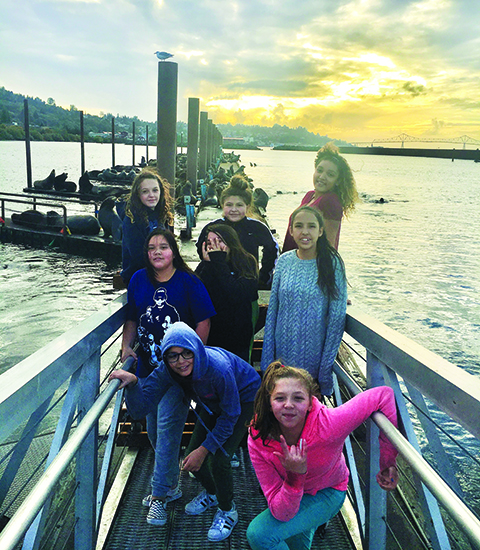
By Micheal Rios, Tulalip News
Exploring the great outdoors is a concept lost on most youth today. The digital age has ushered in a generation of children who would rather use their digital devices within the confines of an available Wi-Fi signal than to go outside and play. For precisely this reason, it is imperative children are exposed to nature and their surrounding environments if for nothing else than to remind them there is a whole wondrous world out there and they are a part of it.
“Glamping” is a new term used to describe a method of exploring the outdoors, but still having some of the luxuries and comforts of home. Imagine, a primitive cabin located next to a beach that has bunk beds and electricity to provide heat, but no TVs, no computers, no Wi-Fi. Instead of a kitchen there’s an available fire-pit to make fires and then cook over. Oh, and the only available restroom in the evening is the one you construct. Talk about getting back to nature.
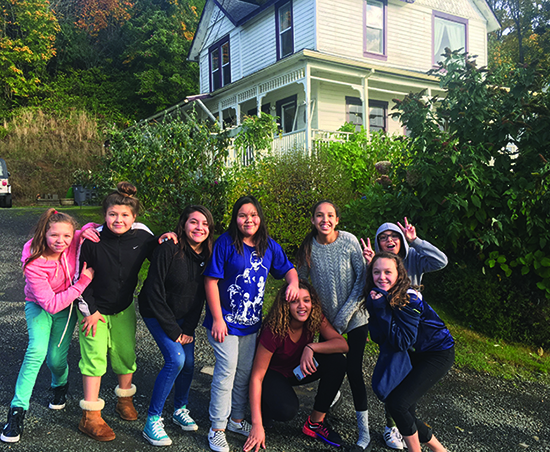
For eight opportunist youth, plus their two chaperones, this was precisely their set of circumstances as they unplugged for three days and two nights in order to experience the great outdoors, namely the Seaside, Oregon coastline.
Jacynta Myles-Gilford, Kendra McLean, Savannah Black Tomahawk, Hazel Black Tomahawk, Lovaiya Guardipee, Tahlanna Guardipee, Mirayna Guardipee, and Ariyah Guardipee were all glamping first-timers eager to try out the new experience. Their chaperones were Barbara Hinchcliffe, Therapist at Behavioral Health, and Monica Holmes, MSPI Grant Behavioral Health.
“As part of the MSPI grant and values of Tulalip Youth Services, we hope to expose youth to various opportunities to learn and grow, build skills and positive coping mechanisms, while boosting their resiliency and quality of life,” explains Monica on the decision making that ultimately led to the glamping opportunity. “I believe that engaging youth in activities that stimulate their growth mindset, put them in a position to learn and practice self-sufficiency skills, and mentorship through adults who care about them helps our community get one step closer to solving the problem of teen suicide and addiction.”
During the three-day adventure along Seaside’s coastline, each young lady learned some basic outdoor essentials, like how to start a campfire, prepare food, and to cook over a campfire. They were introduced to financial literacy as well. Each participant was given a per diem to cover a meal out, souvenirs and entrance fees to various activities. Many of them learned to budget their money wisely and save for a rainy day.
Stormy weather made-up most of their first two days at the coast, however that didn’t stop the girls from having fun and finding new experiences. Despite the wind and heavy rainfall, the girls geared up in rain ponchos and explored the Seaside beach for adventures in the surf and sand. Whether it was charging up sand dunes or splashing around in the ocean, there were plenty of smiles to go around.
A high-tide adventure was found at Fort Stevens State Park where the Peter Iredale shipwreck remains along the shore. The youth reveled in the sea foam, waves and climbed the wreck like a jungle gym. They also collected a variety of seashells, sand, and other beach trinkets for their memory cups they created.
While exploring their surroundings, the group came into contact with a variety of animals, such as elk, deer, raccoons, sea lions, and seals. In fact, at one of the coastal docks was a host of seals that entertained the girls with their funny antics and graceful swimming. When the girls bought sardines and tossed them out for the seals to eat as snacks, the seals gave a loud applause through their vocalizing.
The group came into contact with lots of other marine life when they enjoyed a tactile adventure at the Seaside Aquarium. A favorite spot was the octopus tank where those brave enough could reach into a water tank and feel the underside of octopus tentacles. The touch tank exposed the girls to a wide variety of local sea life located in the Pacific Ocean. Creatures like starfish, anemone, and sea urchins beckoned them to learn more about a range of textures, colors and habitats of each animal through a completely hands-on approach.
“My favorite part was…probably all of it!” exclaimed 11-year-old Savannah of her glamping experience. “I learned to work together and spend my money wisely.”
“I liked seeing such big waves. I’ve never seen ones like that before,” added 14-year-old Hazel.
While she enjoyed the getaway and seeing all the sights, 13-year-old Lovaiya said she “learned to be prepared” when it comes to the outdoors and inclement weather.
Reflecting on the Oregon Coast adventure with eight energetic youth minus smart phones and TV, chaperone Monica can’t help but smile. “Eight girls in two small cabins did not come without its minor setbacks. Youth were encouraged to express their issues in a forum where they could be resolved in a calm and constructive fashion. Each girl walked away learning how to resolve issues, trust each other, and live up to expectations for conduct and healthy communication. They represented the Tulalip Tribes, their families, and themselves well during our travels. I am so proud of the leaps and bounds everyone has made and look forward to watching them bloom into their highest potential.”



